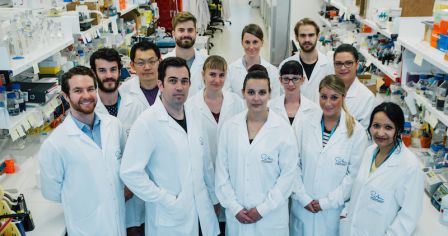
Researchers from the Harry Perkins Institute of Medical Research have improved the scientific understanding of how to build healthy hearts, after finding a gene that’s essential for heart function.
Professor Aleksandra Filipovska and her team from the Perkins Mitochondrial Medicine and Biology Laboratory in collaboration with Professor Oliver Rackham and Professor Nils Göran Larsson and his team from the Max Planck Institute for Biology of Ageing in Germany, developed a model for cardiovascular disease by removing the gene, known as MRPP3, to examine its impact on heart function.
Professor Filipovska said the team found that without this gene, the heart becomes floppy, very soft and enlarged and ultimately can’t support life.
“My team is interested in mitochondria, the energy production factories in our cells. We knew this particular gene was involved in mitochondrial function but we wanted to define its molecular role and how its loss affected heart function specifically,” Professor Filipovska said.
“Our research showed that the gene is critical for life and without it the heart can’t develop or work properly. Its loss causes profound enlargement of the heart, known as cardiomyopathy, that leads to death very early in life.”
The researchers wanted to understand the process that leads to heart disease on a cellular level by looking at the genetic blueprint for building a heart.
“Our study showed that the MRPP3 protein teams up with two other proteins to enable the genes to work within the energy producing powerplants that exist in all of our cells and are essential for life,” Professor Filipovska said.
“The heart is particularly sensitive to errors in these genes because it uses a lot more energy than other organs.”
“Our research broadened the scientific understanding of the essential building blocks for gene expression inside our cells’ powerplants and provides new insights into both mitochondrial diseases and heart disease.”
The research was published in the high impact journal Cell Reports.
